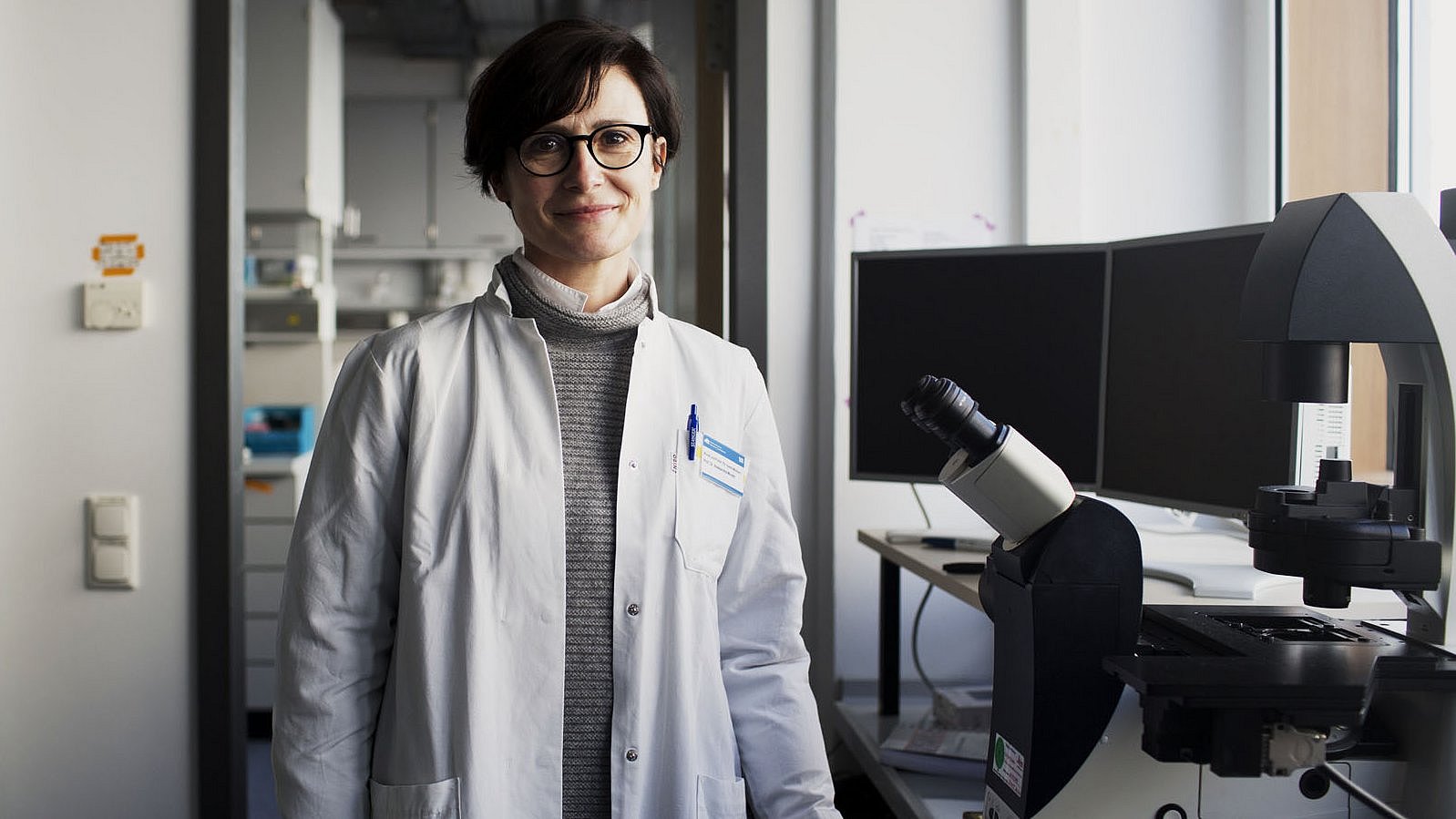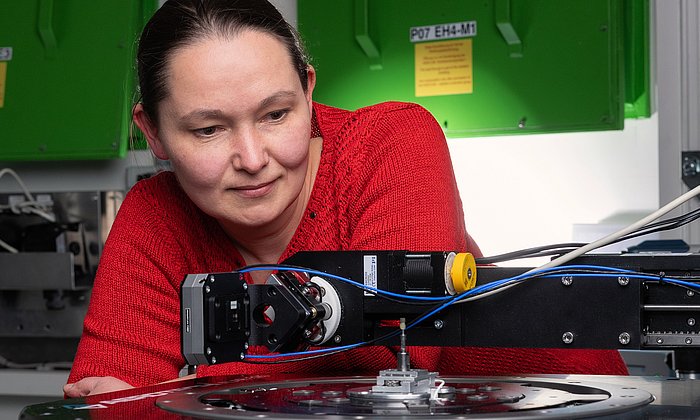EU funds cutting-edge research in medicine and natural sciences
Three ERC Advanced Grants for TUM researchers

Researchers at TUM have already been awarded a total of 212 of the prestigious ERC grants. These are awarded each year in different categories. The Advanced Grants are reserved for excellent established researchers who have demonstrated outstanding achievements over the past ten years. They are endowed with up to 2.5 million euros.
In addition to the three Advanced Grants, two projects will be funded with Proof of Concept Grants. These are awarded to researchers who want to test whether their ERC research projects can lead to marketable innovations.
Prof. Dr. Thorsten Bach
Active pharmaceutical ingredients are often composed of chiral organic compounds. That means that they consist of molecules, known as enantiomers, that are mirror images, but cannot be superimposed one upon the other. In pharmaceutical applications, this difference may result in one enantiomer tending to heal a patient, while the other causes side effects. Until now, considerable effort was needed to separate the undesired molecules from the mixture containing both enantiomers – the racemate – because it was not possible to transform the mixture into the desired final product. This is the starting point of the CALIDE project, headed by Prof. Thorsten Bach. Based on successful preliminary work, photochemical reactions will be used to convert the racemate of an organic compound into the desired enantiomer.
Prof. Thorsten Bach holds the Chair of Organic Chemistry I. He was awarded an ERC Advanced Grant in 2015 and received the Gottfried Wilhelm Leibniz Prize in 2020.
Prof. Dr. Nora Brambilla
Quarks are the elementary constituents of matter. The properties and interaction of quarks and gluons, which are the carriers of the strong force, are of paramount importance in the quest to understand the behavior of matter at the most fundamental level. The strong force is unique among the four forces of nature for displaying the phenomenon of confinement in the low energy region, making its study particularly challenging. For a long time, quarks were observed to combine in hadrons only as quark-antiquark (mesons, like the pion) or in group of three (baryons, like protons and neutrons that make up the atomic nuclei). In the last two decades new exotic hadrons, called XYZ, have been discovered at particle accelerator experiments around the world. They display striking and unexpected characteristics and their composition in terms of quarks and gluons is still unclear. The research project “EFT-XYZ” by Prof. Nora Brambilla aims at investigating these new forms of matter. With an unprecedented combination of quantum effective field theories and massive computer simulations this research will produce a breakthrough in our ability to calculate the XYZ properties in vacuum and in medium, granting new insight on the fundamental strong force.
Prof. Nora Brambilla is head of the "Theoretical Particle and Nuclear Physics" group at the TUM School of Natural Sciences and founder of the TUMQCD Lattice Collaboration. Prof. Brambilla is a member of the ORIGINS and MCQST Clusters of Excellence. She is also a core member of the MDSI.
Prof. Dr. Alessandra Moretti
After birth, humans cannot any longer repair damage to the heart muscle. However, animals such as zebrafish are able to do so. In the EPICURE project, a team led by Alessandra Moretti wants to decode the mechanisms of heart development in humans and use them for new therapies. The researchers are relying on specially developed cardiac organoids called epicardioids. These three-dimensional cell structures can be used to simulate the development of the human heart in the culture dish. The researchers are especially interested in the role of the epicardium, the outer layer of cells covering the heart. During embryonic development, these cells emit signals that control the development of the organ. The scientists hope to use their findings to develop new therapeutic approaches for heart disease based on gene modulation by CRISPR-Cas technology.
Alessandra Moretti is Professor of Regenerative Medicine of Cardiovascular Disease. Her research has already been funded with an ERC Advanced Grant. The epicardiods are a result of this project.
Proof of Concept Grant: PD Dr. Jennifer Altomonte
While prophylactic vaccinations protect against diseases, therapeutic vaccinations stimulate the immune system to fight an existing disease. In her DCanVAX project, adjunct teaching professor Dr. Jennifer Altomonte wants to pursue a new approach to therapeutic vaccinations against cancer. Altomonte and her team employ tailor-made viruses to "train" the patient's immune cells. For this purpose, tumor cells are removed and destroyed by the virus. What remains is an immune-stimulatory lysate that contains all of the tumor antigens, i.e., molecules that enable the immune system to recognize the cancer cells, as well as a cocktail of cytokines. The researchers then inactivate the virus and use this solution to activate the patient's extracted immune cells, dendritic cells, to be precise, in order to train them to recognize their cancer cells. The idea is that these cells can then be reintroduced into the body as a personalized vaccination to trigger an immune response against the cancer.
PD Dr. Jennifer Altomonte heads a research group at the Clinic and Polyclinic for Internal Medicine II at TUM's Klinikum rechts der Isar. The ERC funded her research on tumor-specific viruses with an ERC Starting Grant.
Proof of Concept Grant: Prof. Dr. Frank Pollmann
Quantum computers can perform certain tasks more effectively than conventional classical computers. However, current quantum computers and probably also the models of the near future are still severely limited—for example by the loss of coherence due to the coupling with the environment and also by the limited number of "qubits". In order to be able to use these quantum computers despite those limitations, algorithms are required that are specifically designed for the respective platform. With the QTEngine project, Frank Pollmann will create a “quantum tensor network” based software package that forms the basis for the development of, e.g., quantum simulations and quantum machine learning, regardless of the computer used. The aim is to make it easier for researchers and commercial developers to work with quantum computers.
Frank Pollmann is Professor of Theoretical Solid State Physics at TUM. The ERC has already funded his research with a Consolidator Grant. He is a member of the MCQST Cluster of Excellence.
Technical University of Munich
Corporate Communications Center
- Paul Hellmich / Julia Rinner / Magdalena Eisenmann
- paul.hellmich@tum.de
- presse@tum.de
- Teamwebsite

